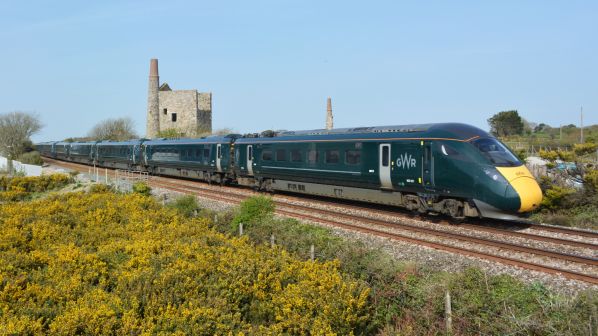THE British government needs to step back from the day-to-day running of the country’s railways, with increased transparency and a greater focus on the needs of passengers, according to Mr Keith Williams, who is leading an independent review into the industry.
Speaking at a Northern Powerhouse Partnership event in Bradford on July 16, the former British Airways chief executive said his team is now in the process of narrowing down options for reform and final recommendations after 10 months of consultation with the industry.
“I have been frank with the Department for Transport (DfT) about the scale of change required - including a different role for the department - to create a genuinely customer-focused industry,” Williams says. “It is onboard with the direction we’re heading in. DfT permanent secretary, Mrs Bernadette Kelly, has spoken openly of her and her department’s appetite for change recognising that that the department has become too immersed in delivery. She understands that, at the end of this review, simply tinkering at the edges will not be credible and the government will have to step back from the railway.”
Williams says creating greater distance from the government must also bring the railway closer to its customers, and he argues change needs to be anchored in the regions and communities the network serves.
“I want to see the creation of a thoroughly modern, 21st century service provider,” Williams says. “A railway that is run in the public’s interest, delivering for passengers, supporting local economies, embracing innovation and new business models to improve journey experience and reduce costs.
“It must be open, collaborative, embrace and create opportunities - for its people, passengers, communities and businesses.
“We need to change both the design and culture of the railway so it prioritises customers - passengers and freight.

“And for regions like the north and cities across the country, there must be greater opportunities to influence and inform decisions about services and upgrades in your area.”
To achieve these goals, Williams says reform needs to be focused in five key areas:
- A new passenger offer focussed on customer service and performance measures that drive “genuine behavioural and cultural change” with initiatives to give a stronger consumer voice, improved accessibility, and better passenger information.
- Simplified fares and ticketing: Williams notes that there have been no substantial structural reforms of the ticketing system since 1995 and this is “holding back innovation and customer-focussed improvements.”
- A new industry structure to reduce fragmentation, align track and train more closely, create clear accountability and reduce government influence in day-to-day operations. Williams says a wide range of organisations have expressed support for a new arm’s length body to act as a ‘guiding mind.’
- A new commercial model: Williams argues the current franchising model “has had its day” and is holding the sector back, stifling collaboration, preventing the railway from operating as a cohesive network and encouraging train operators to prioritise “narrow commercial interest” over passengers.
- Address people-related challenges: a range of proposals on leadership, skills and diversity are being drawn up to support reform and help involve the workforce in the long-term.
“Listening has told us the government, industry, the regions, passengers, politicians from across the spectrum and everyone else with a stake in the railway are united in a desire for root and branch change,” Williams says. “So, the opportunity to deliver genuine, lasting reform here is huge.
“The industry is complex and getting to our final destination may take some time, but passengers must see and feel tangible changes quickly if we are to turn around declining satisfaction and trust.
“Change will need tough decisions to be taken and require collaboration and partnership working across the sector, but the prize will be big.”
The review is due to be completed in the autumn.

